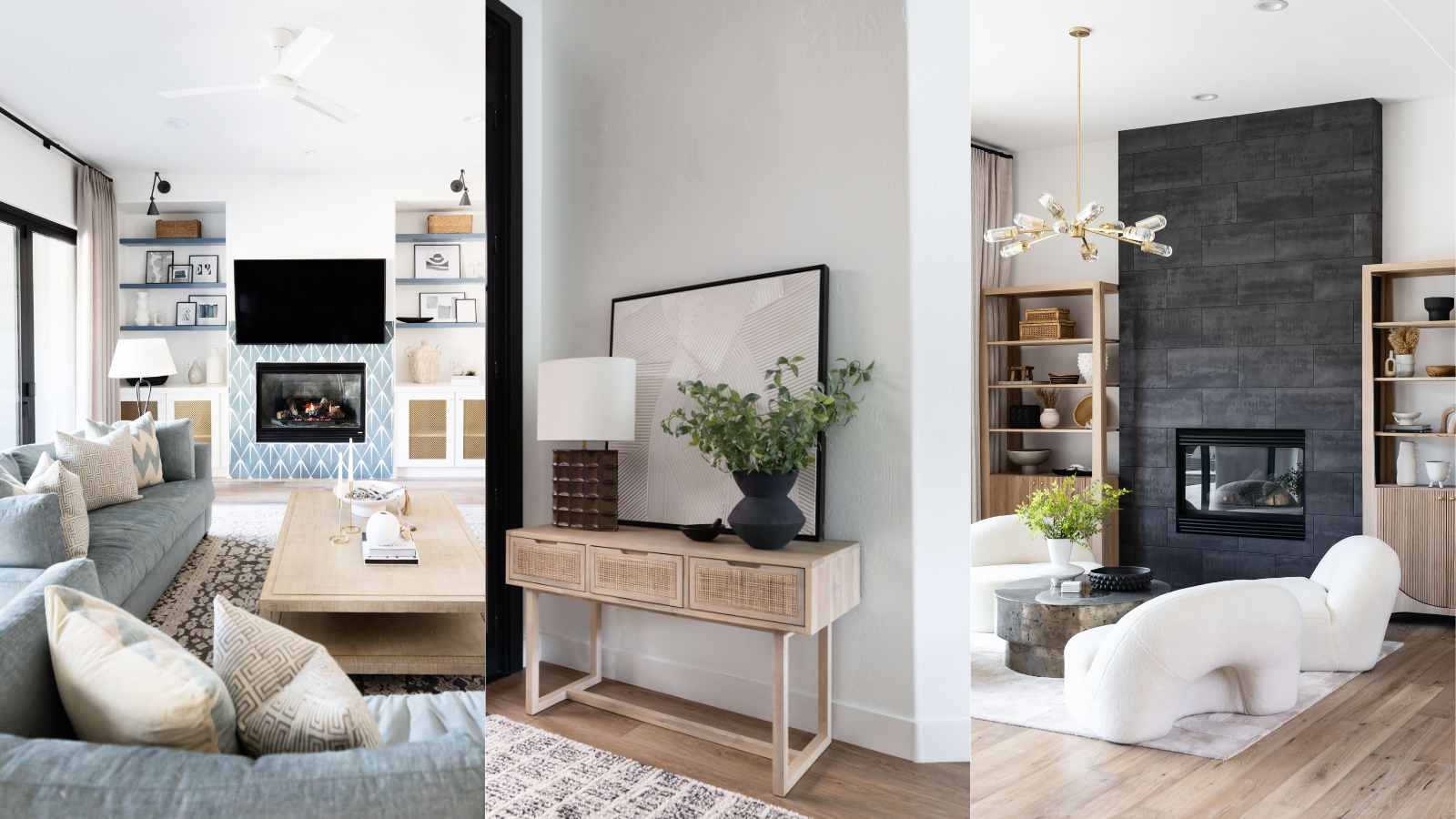
Ah, the festive season; filled with joy, extravagance, and sparkle. And if you host over the holidays, add in a whole lot of friends and family too.
Every host hopes that each guest will leave with fond memories of a jolly soirée, in lovely cozy surroundings that felt welcoming as soon as they walked through the door. So if there is a moment to make your home feel more inviting, it is over the holidays. But what things around your home could in fact be having the opposite effect? What could be making your home feel uninviting? We asked the experts what to avoid if you want to create a warm welcome for all your guests over the holidays (and beyond).
1. Too much clutter
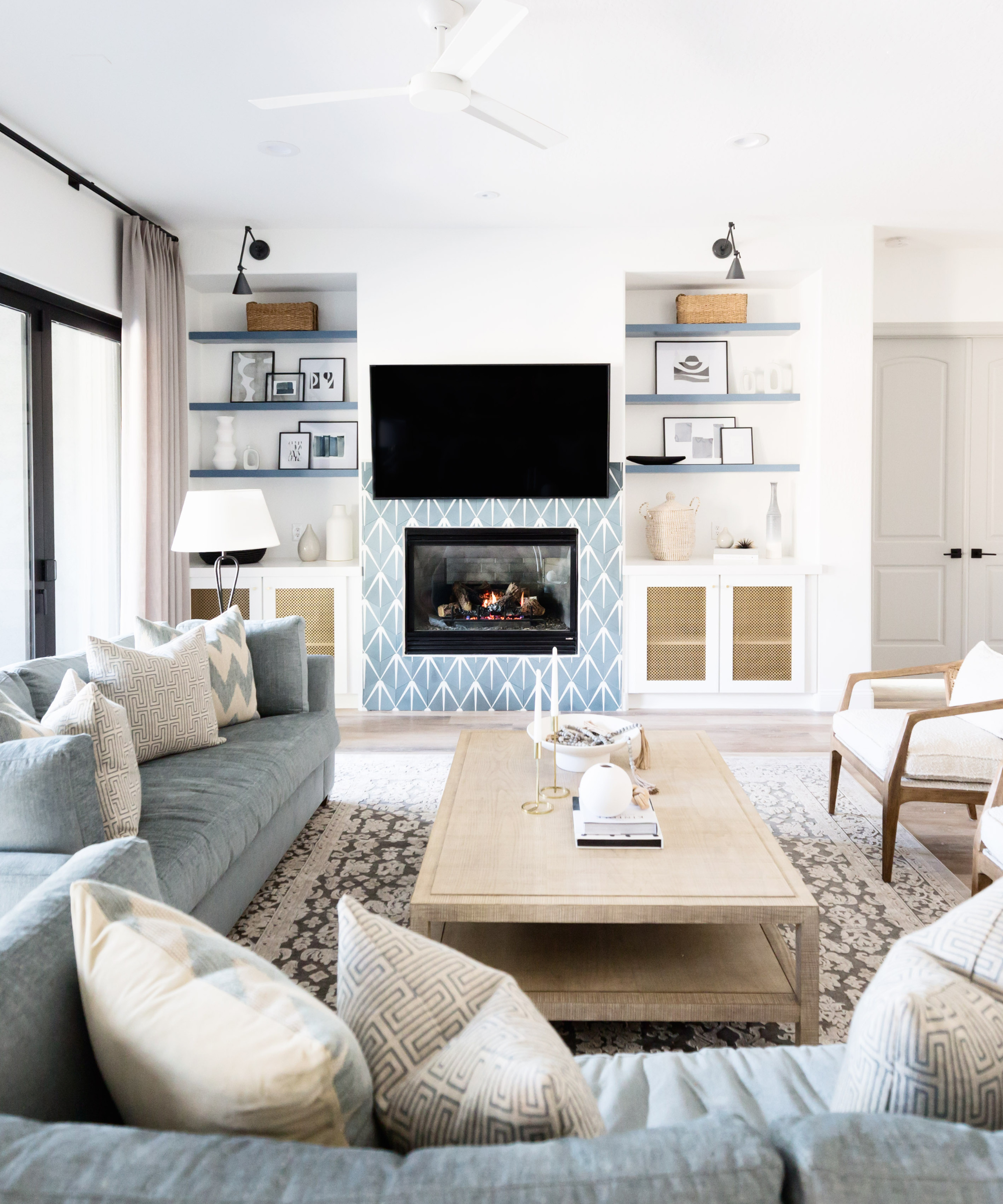
Whether you’re a seasoned host or not, excessive clutter is a no-go when guests are on the festive calendar. And we start here since this as a key culprit for disrupting a welcoming atmosphere. Decluttering before Christmas is a must.
Before you panic at the thought of having to do an extreme cul, it is more a question of organization and decluttering key spaces that will get used over the holidays. ‘The goal would be to eliminate clutter and focus on essential elements,’ says Lauren Lerner of Living with Lolo. ‘Consider adding furniture with multiple uses, along with vertical furniture. This clever approach not only maximizes functionality but also adds aesthetic appeal to the room. Also make sure you are utilizing closed cabinetry or baskets on open shelves can help conceal and organize items.'
2. 'Off' proportions
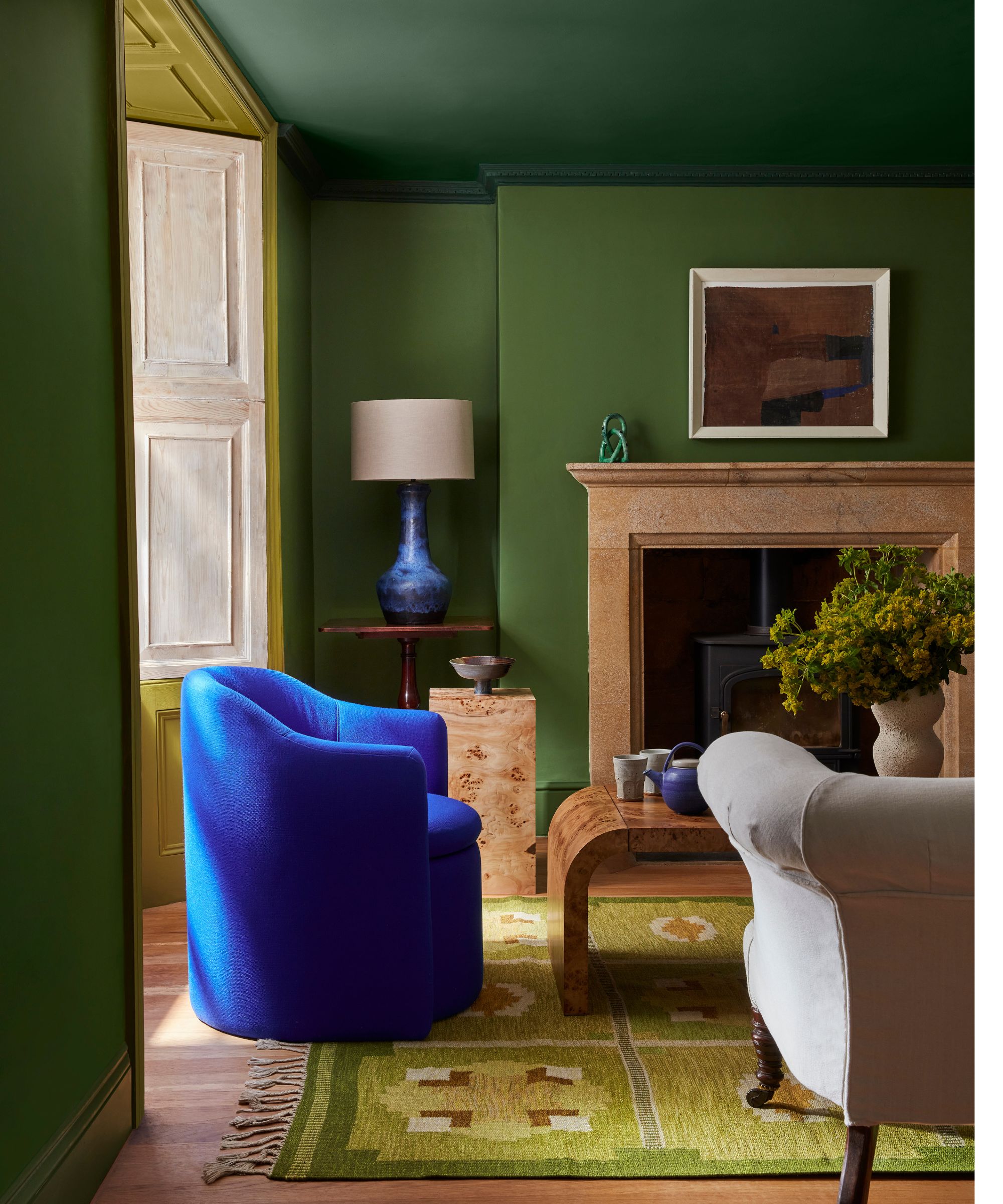
No matter how much time you have spent finessing a room if the design fundamentals have been disregarded, your home simply will not have that wonderful inviting appeal you had hoped to create.
‘Nothing can kill a vibe faster than the wrong proportions,’ shares Amy Pigliacampo of Amy Pigliacampo Interiors. ‘If the size relative to the space is wrong it doesn't matter how nice the pieces are on their own.’
The size and shape of items will affect how they interact together and really sets the feeling for the room and how it's used. Especially bulky furniture in small spaces might come across as too visually heavy, depending on the rest of the design scheme. It is all about balance so try and be considerate of this to create a home that has flow, where guests can move freely and interact with the space too.
3. Unthoughtful lighting
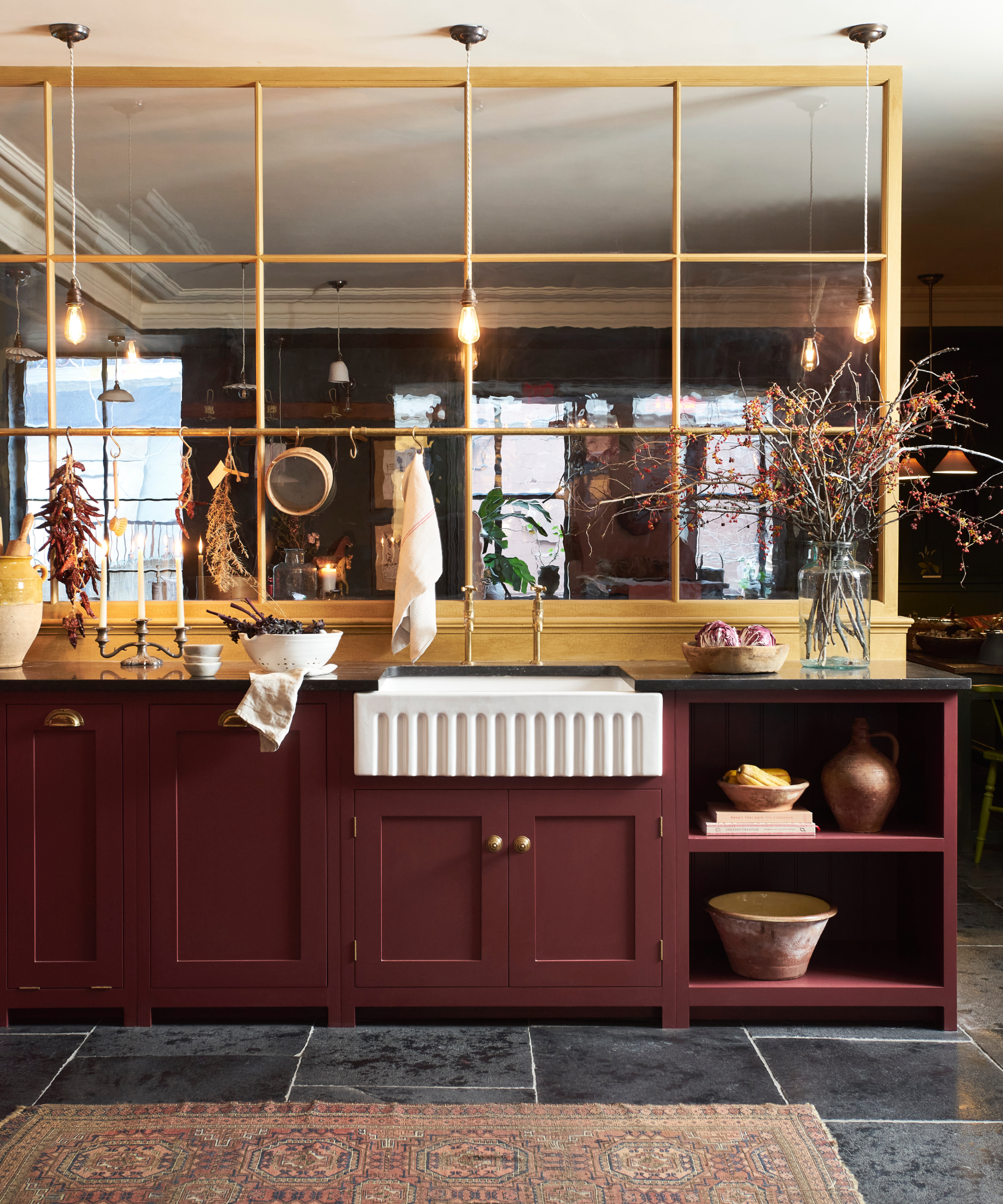
Lighting can be one of the most playful design elements in a home, but also one of the trickiest to get right, so it comes as no surprise to feature it on this list. ‘Bad lighting is always a sore spot for me,’ shares designer Amy Kalikow. Especially when guests are around, good lighting can set the tone and create the right, cozy ambiance.
Having a mixture of task, ambiance, and accent lighting is a great starting point for most areas in the home, but the style of the lighting fixture and of the bulb itself makes a distinct difference. Too cool a bulb tone can come off as stark and cold, just as a very bright overhead light might feel jarring. ‘An easy fix is to change the temperature of lightbulbs to be more neutral and not so yellow. It really helps,’ advises Amy.
And placement is key too and should be tailored to your home and hosting style. Deciding between warm or cool lighting in a kitchen, for example, depends on where lights are going to be placed. This space needs to be practical but, naturally, you also want to help a kitchen feel more inviting so over a kitchen island that becomes a cocktail bar by night, moodier lighting might be more appropriate.
Then in a living room, layering floor and table lamps will add dimension and make it feel cozier. Remember to not skimp on lighting either: ‘Adding great lighting is always helpful too as a dark room is never an inviting one,’ adds Amy.
4. Overly personal and pet-related items
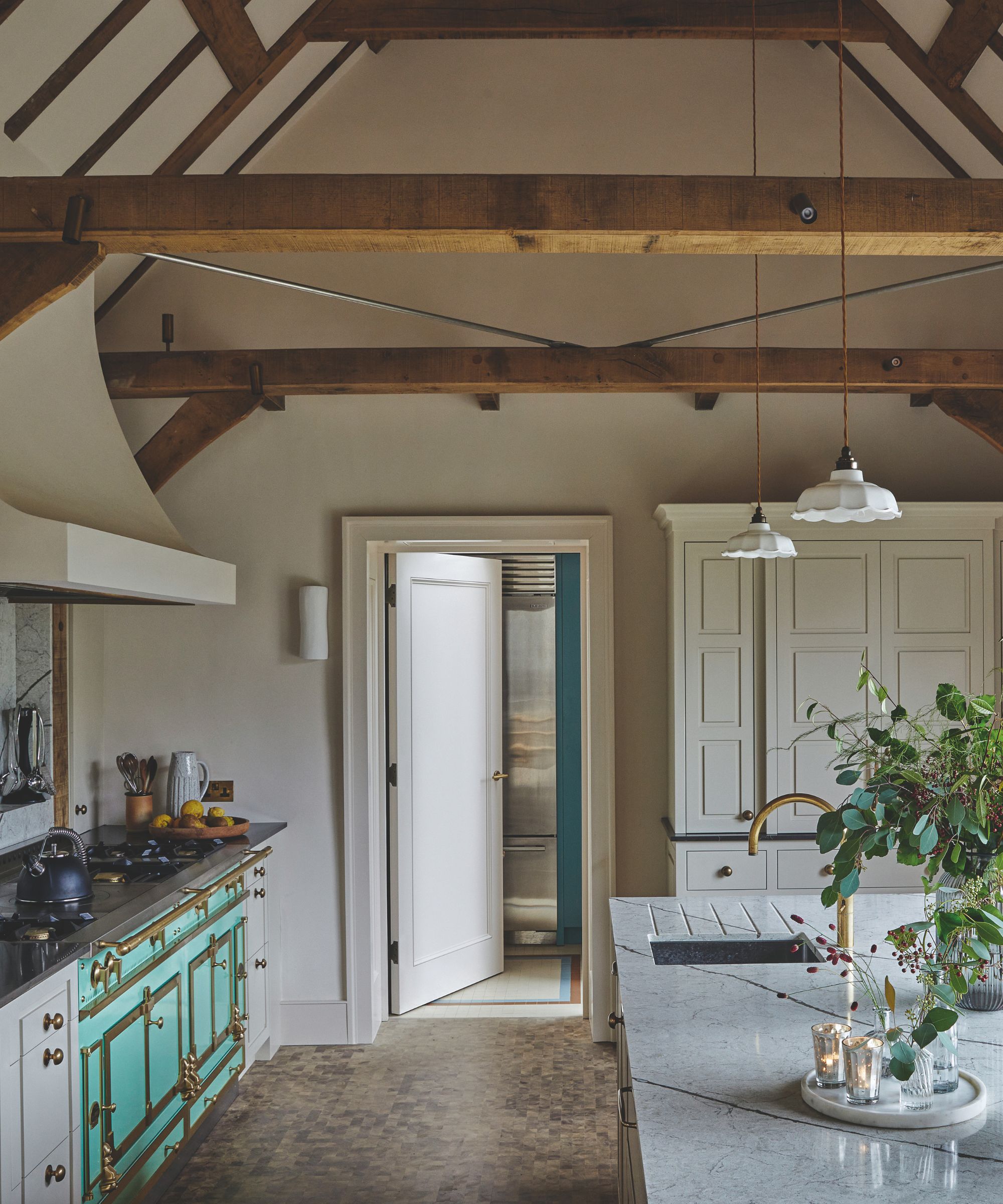
‘Unexpected or overly personal items can detract from an inviting home and disrupt the sense of ease for guests,’ says Nicole Roe the founder of R. Nickson Interiors. ‘While not unusual, things like medications, personal documents, or clothing can feel out of place in communal areas and create an unintended sense of intrusion.’ Of course, a grocery list or a scarf might go awry and land on the couch in winter, but take care not to let it go overboard.
Nicole also notes that pet owners should pre-empt a more thorough tidy-up before guests arrive. ‘Similarly, pet-related items such as dog beds, litter boxes, or food bowls, while essential to the household, can bring odors or discomfort, especially for guests who aren’t pet enthusiasts. Keeping these items discreetly stored or confined to private spaces helps maintain a welcoming, polished atmosphere.’
5. Exercise equipment
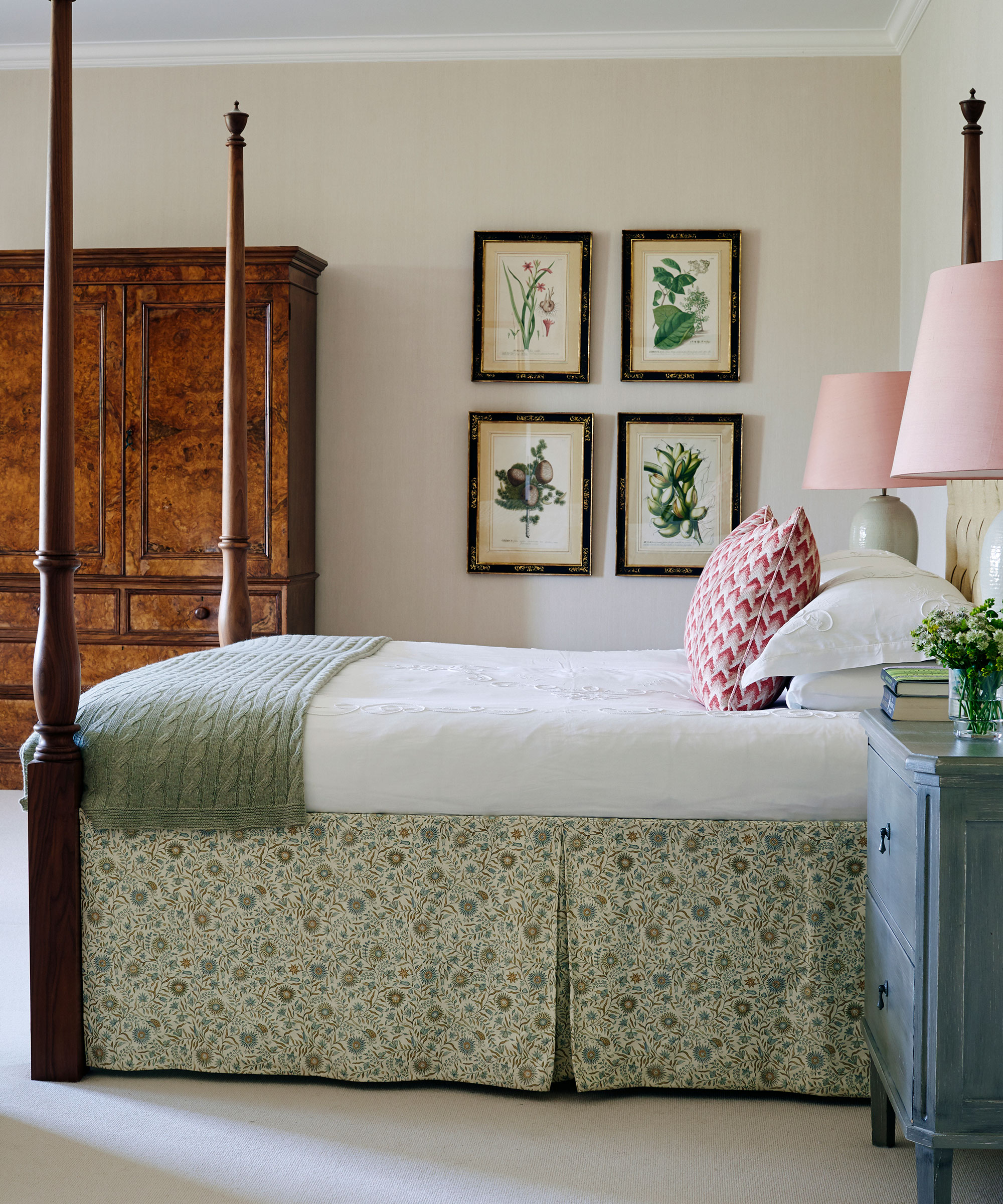
Workout gear is something else that should be kept elsewhere when guests are around. 'Exercise equipment in a living room totally throws the vibe of home,' says Jennifer Press of Press Interiors. 'Sometimes we can't avoid it, especially if living in small quarters, but it does ruin the aesthetic of an otherwise welcoming home.'
Though by default you may move it to the bedroom, avoid this at all costs – especially if the guest bedroom. 'Bedrooms should be zen-filled to contribute to a restful night's sleep, and there is nothing relaxing about seeing a Peloton in one's bedroom!' advises Jennifer.
6. Harsh lines and overly styled rooms
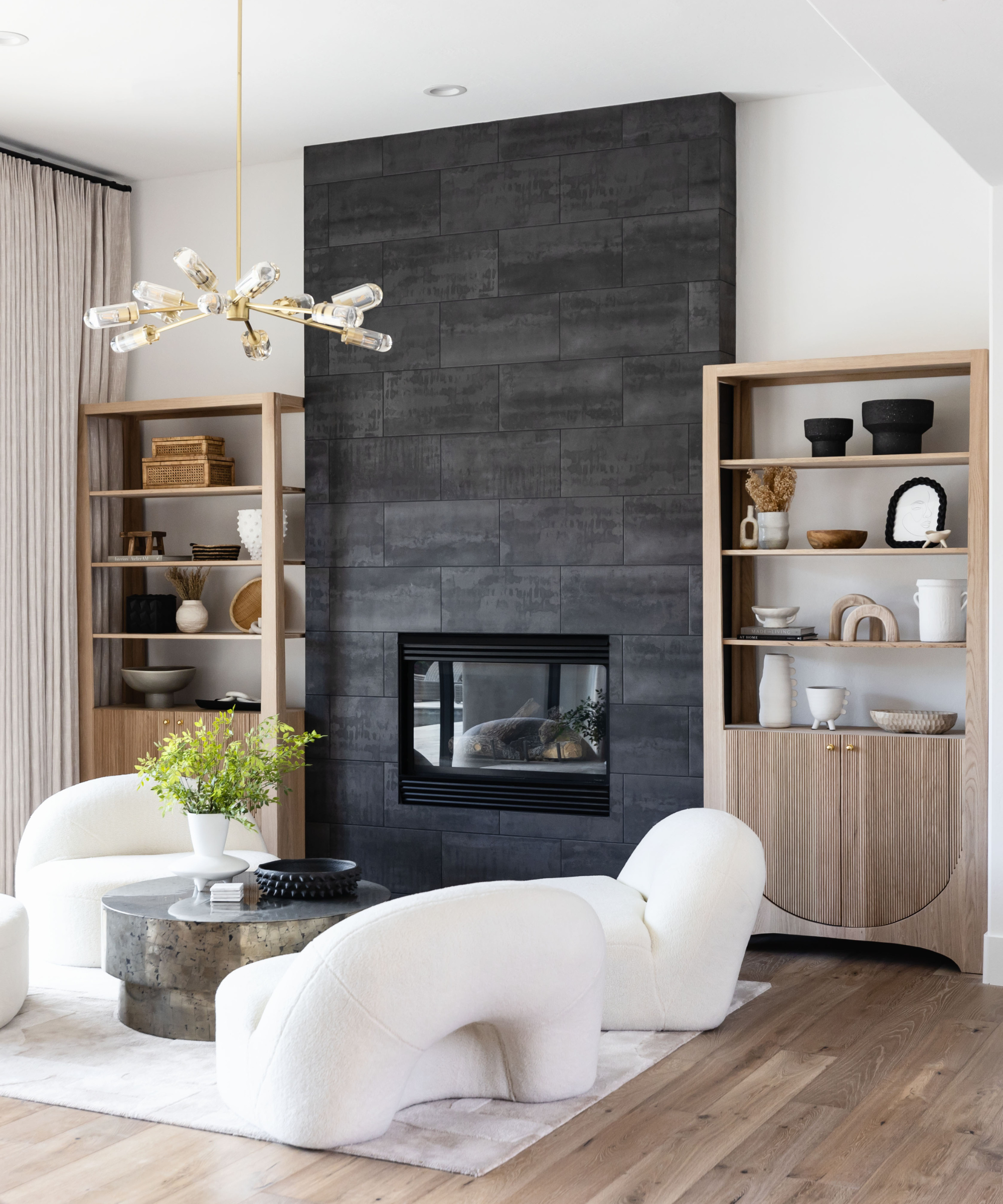
‘A lack of softness stands out right away,‘ share Anna Kroesser and Amelia Strat, the founders of Kroesser + Strat Design. ‘That can be in the way of the furnishings – all squared off pieces i.e. sofa, coffee table chairs, or a lack of soft accessories with pillows and throw blankets, layers of different types of fabric.’
‘We always find that spaces that are overly styled – where everything looks perfect – can feel oddly uninviting,' continue Anna and Amelia. Even minimal spaces can charm and bring a sense of the household’s character. Decorative elements like artwork, thoughtful accessories, and patterned or colored throw pillows can all lift a room when done through a designer lens. 'A home should feel lived in, and not look like a showroom,’ continues the designer duo.
Be sure to keep those much-coveted items that represent a little of you in sight. ‘A welcoming home must feel lived in and have personal moments throughout, with objects and books visible—not bare like a spec house,’ adds designer Zoë Feldman. ‘I design homes with the philosophy that nothing is too precious to use, no matter how beautiful.'
How can you make a home feel more inviting?
To create a welcoming atmosphere in your home, remove the unnecessary and unfavored elements (as listed above) to make room for things that bring joy and atmosphere.
‘Add color in pillows, drapery, throws, and rugs for a pop of color that is not overwhelming but brings personality,’ suggests Lauren Lerner. Think too about how you might add dimension and work cleverly with the configuration of individual rooms. ‘We also always love to find a way to add a wall mirror as the reflection helps the room to appear larger and brighter.’ Plants and accessories such as candles are also failsafe ways to bring softness and coziness to a home. Not forgetting the importance of thoughtful lighting for ambiance. ‘Warm lighting is imperative for welcoming people to your home in the evening. Use lamps and dimmed fixtures instead of harsh overhead lights,’ adds Zoë Feldman.
When you are hosting, some things are better hidden away or moved to lesser-used rooms over the holidays to ensure your home feels welcoming. Keep clutter out of sight and stay true to the fundamentals of good interior design, and the welcoming charm of your home is sure to shine through.







